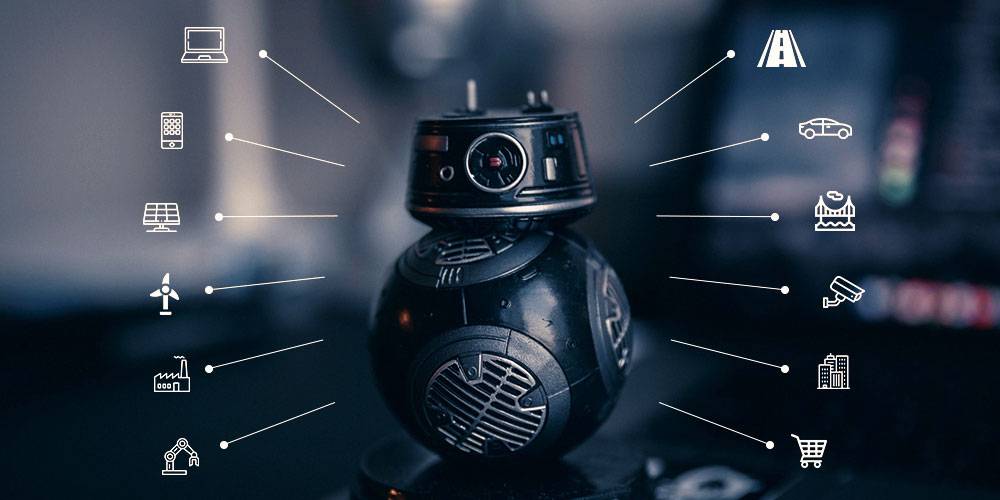10 Industries Where True Potential of Artificial Intelligence Lies

Written by Sharoon Emmanuel

Artificial Intelligence (AI) is revolutionizing industries by delivering greater personalization and automating processes to enable better performance on a granular level. As most sectors are stymied with well-worn processes and regulations, the full embracement of AI is sure to take place to remove bottlenecks.
From catering complex procedures to streamlining stringent administration processes and to address national security challenges, Artificial Intelligence is able to disrupt any industry it is implemented in.
Keeping workflow challenges in mind, here are the 10 industries that would be influenced by Artificial Intelligence.
1. Software Development

AI technologies have the capability to completely transform the entire software lifecycle allowing the development of new applications with the right experiences and architecture and also to analyze its value and influence for the organization. Utilizing advanced machine learning, deep learning, natural language processing and predefined business rules will enable developers to build better software faster.
Related: - Artificial Intelligence Dubai
2. IT Service Management

IT service management (ITSM), corporate and government networks will consider AI technology as a viable solution where there aren’t enough resources to cater requests and incidents. Organizations can turn to AI enabled chatbots to handle I.T support calls and provide a better service experience.
3. Healthcare

AI offers endless possibilities with AI, enabling practitioners to predict diseases, automate diagnostic tests, identify high-risk patient groups and to increase speed and precision of treatment. Moreover, it can serve to improve medication formulation, predictive care, and sample analysis thus positively impacting the quality of healthcare.
4. Intellectual Property

AI can help with intellectual property issues utilizing image recognition. Leveraging 2D / 3D image recognition and artificial intelligence, intellectual property can be protected via visual search solutions. Instead of just scanning objects based on data and codes, they use a combination of proprietary search systems and machine learning algorithms to understand and think like humans to contextualize and recognize with 100% accuracy.
5. Agriculture

To cater labor shortages in various agricultural departments, AI can serve as a disruptive technology for task automation and efficiency gains. Considering the fact that people are less likely to join the agriculture sector, the deficiency of workforce can be addressed by adopting AI.
6. Contact Centers

We will soon see a massive revolution in the call center field where instead of actual humans, AI robots will simulate human behavior and interactions to cater customer requests. A real-time example of AI utilization in call centers is chatbots.
As development continues to take place in Artificial Intelligence through deep learning with Google's TensorFlow platform, industries are now able to automate approximately 60% percent of queries. Enabling end user to receive response in seconds, AI would definitely replace existing call center systems and operations.
The services sector is most likely to be influenced by AI in the form of voice assistants. Most queries a service helpdesk receives are uncomplicated like opening hours and determining when a technician is due to arrive, meaning they are simple enough to be responded by a bot.
Also Read: - AI Chatbots Business Applications: Key Constituent for an Amplified Customer Experience & ROI Augmentation
7. Customer Experience

Delivering an unappalled omnichannel customer experience is at heart of a brand’s success. While retail has the lead when it comes to AI, others are following suit. Travel and hospitality sector is seeing real value in implementing AI chatbots to offer personalized concierge level service at scale. Airlines can also integrate AI in their current operations to mitigate challenges faced in terms of understanding the context and intent of the customer to better resolve their concerns.
See how Hawaiian airline increased flight booking by 185% by developing a data-driven mindset: -
8. Energy and Mining

For industrial segments, AI can help to remove bottlenecks from port scheduling operations via cognitive intelligence (or human-like reasoning). Cognitive AI can also be utilized to track tankers departure time, destination, amount of resources (oil & gas) being transported, predicting product type and refinery arrival times thus enabling industrialists to make faster, smarter business decisions.
Involving a combination of core cognitive capabilities of multi-agent scheduling with reactive recovery, rule compliance, asset management, diagnostics, and prognostics to ensure seamless autonomous operations, AI can add tremendous value to the energy sector.
Machine learning, when applied to drilling, can help gain actionable insights into key information such as thermal gradients, pressure differentials and more. Having complete data analysis at their disposal, the energy sector can predict equipment repair, failure and downtime along with identifying prospective sites of new wells.
9. Manufacturing

Artificial Intelligence can help the manufacturing industries to not only automate but optimize their operations. Industries such as pharmaceuticals and healthcare which deal with sophisticated information require vigorous planning, testing and analysis, this is where AI can help decrease chances of diagnostic errors and render a perfect final product.
AI-based decision-making applications can also analyze complex medical data and research to help practitioners better diagnose and treat ailments.
10. Retail

Deploying AI chatbots will enable retailers to radically increase the amount of key data they can collect about customers and prospects, giving them a competitive advantage to better understand intent, context and expectations. When customers use vocal gestures to navigate websites and to make purchases, Chatbots gather these audible reactions to augment the conversational capabilities and provide insights to develop an association with their customer’s emotions, behavior and mood.
Also Read: - Why Grocers Should Reimagine Retail with an Omni-Channel Approach?
The age of Artificial Intelligence is here and the retail sector can be heavily influenced by it in terms of delivering a better experience and display personalized messages focused on customer satisfaction and increased ROI.
As part of a viable business growth strategy, early adoption of Artificial Intelligence in all sectors will come with first-mover advantages for owners and stakeholders. For complete digital transformation, connect with us today to learn more about how our digital media agency can help you automate processes, augment engagement and increase ROI.
Originally Published May 22, 2019 02:00 AM, Updated May 27, 2019.




